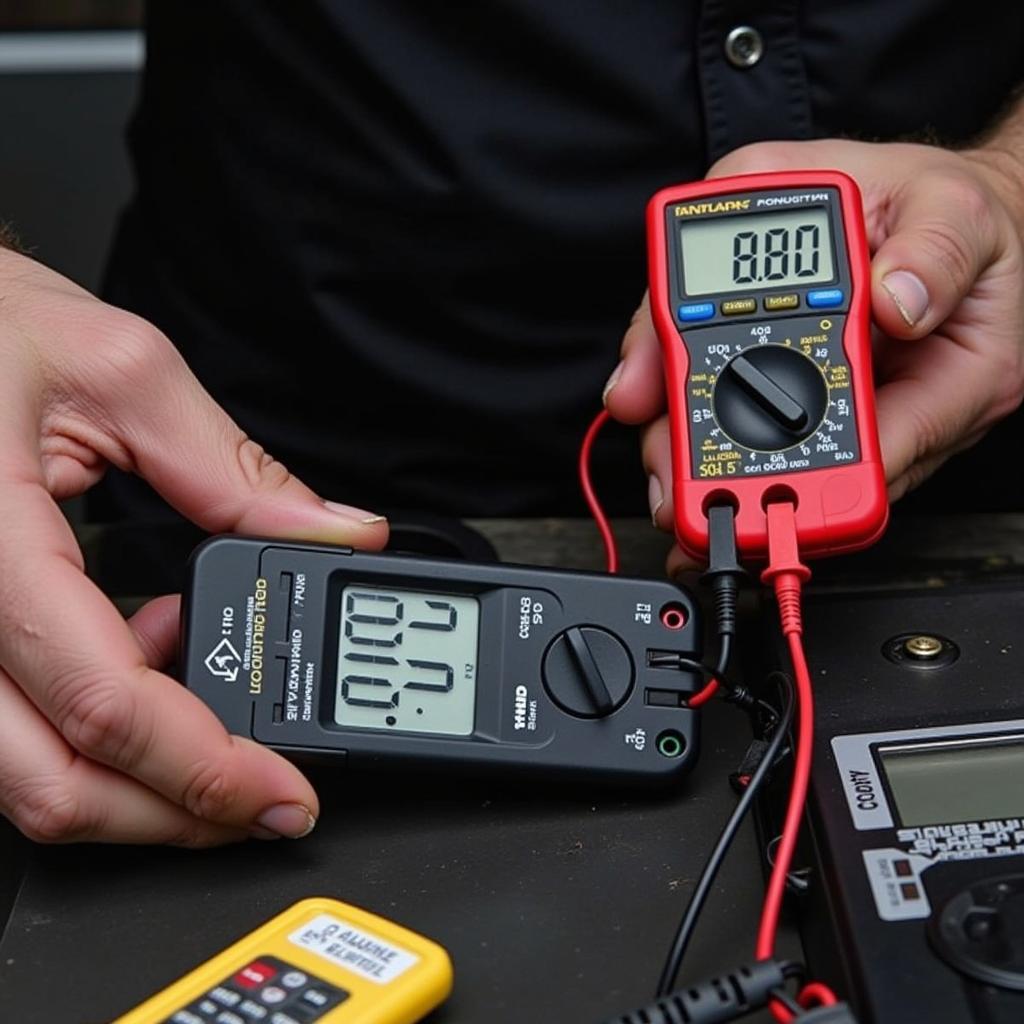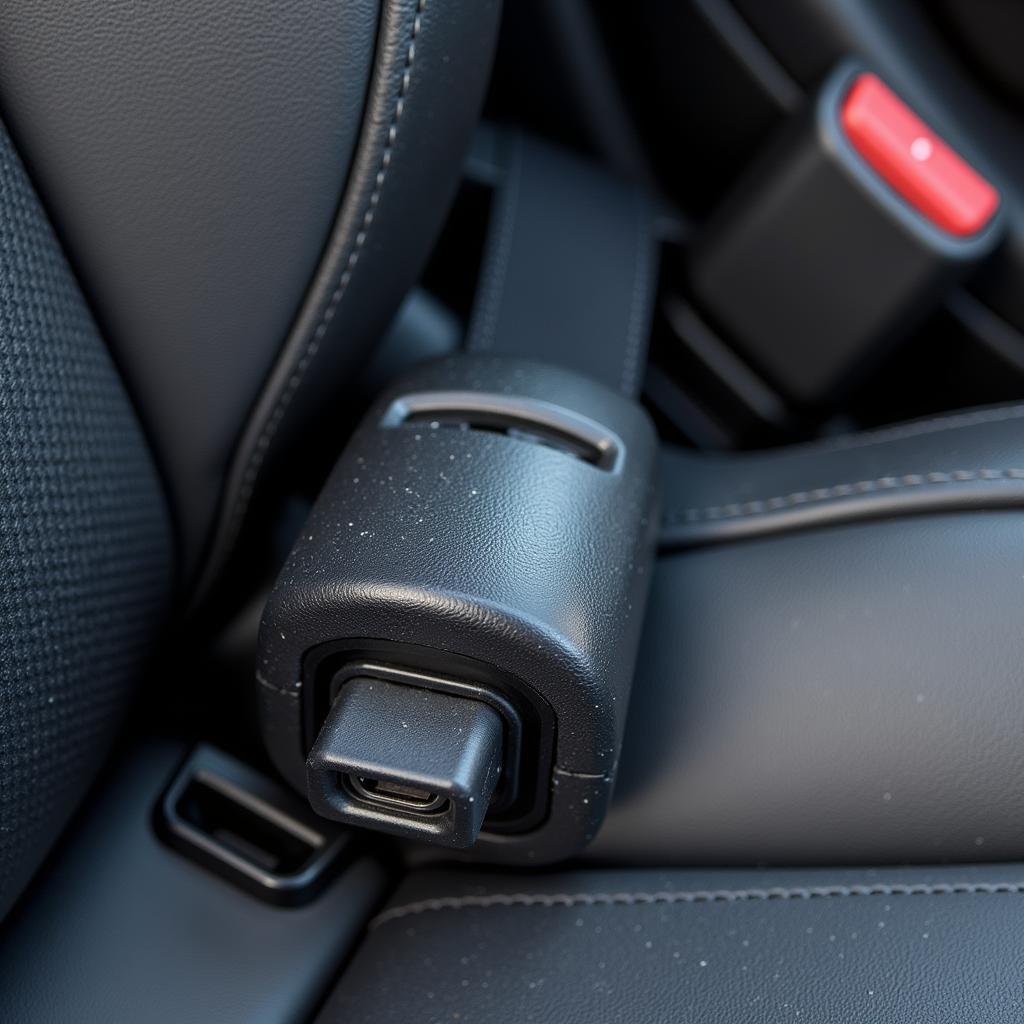Diagnosing a bad alternator or battery can be tricky, but with the right approach, you can pinpoint the culprit and get your car back on the road. This article will guide you through various tests and symptoms to help you determine whether your alternator or battery is the source of your car troubles.
One of the first signs of a failing battery or alternator is difficulty starting your vehicle. If your car cranks slowly or not at all, it could indicate a low battery charge. However, a failing alternator could also be the root cause, as it’s responsible for recharging the battery while the engine is running. So, how do you tell the difference? Let’s explore some key indicators.
Identifying a Bad Battery
A bad battery often manifests itself through:
- Dim headlights: If your headlights are significantly dimmer than usual, especially when the engine is idling, it could point to a weak battery unable to supply sufficient power.
- Slow cranking: A struggling starter motor, resulting in slow engine cranking, is a classic symptom of a dying battery.
- Electrical issues: Malfunctioning interior lights, radio, or power windows could be attributed to a battery that isn’t holding a charge effectively.
- Battery warning light: While this light can also indicate alternator issues, it’s often a sign of a bad battery.
- Old age: Batteries typically last 3-5 years. If your battery is nearing or exceeding this lifespan, it’s a prime suspect.
Testing Your Battery
You can test your battery’s health using a multimeter. A reading of 12.6 volts or higher indicates a healthy battery. A lower reading suggests a weak or failing battery.
“A simple voltage test can save you a lot of time and frustration,” says automotive expert, John Smith, ASE Certified Master Technician. “It’s the first step in diagnosing any starting or charging problem.”
Recognizing a Failing Alternator
A failing alternator often presents these symptoms:
- Dim or flickering lights: Unlike a failing battery, a bad alternator can cause lights to dim or flicker while the engine is running, as it’s unable to maintain a consistent electrical supply.
- Battery warning light: The battery light illuminates when the alternator isn’t charging the battery properly.
- Strange noises: A failing alternator might produce whining or grinding sounds due to worn-out bearings.
- Electrical system malfunctions: Similar to a bad battery, a faulty alternator can lead to erratic behavior of electrical components like the radio or power windows.
- Burning smell: An overworking or failing alternator can emit a burning smell due to excessive heat.
Testing Your Alternator
With the engine running, use a multimeter to check the voltage across the battery terminals. A reading between 13.5 and 14.5 volts indicates a properly functioning alternator. A reading outside this range suggests a potential alternator problem.
What if I have a Car Starting Problem with a New Battery?
Sometimes, even with a new battery, you might experience starting problems. This could be due to a faulty alternator not charging the new battery, a parasitic draw draining the battery, or even a bad starter motor.
car starting problem with new battery
“Don’t automatically assume a new battery solves all your problems,” advises automotive electrical specialist, Jane Doe. “A thorough diagnosis is crucial to identify the true root cause of your car’s starting issues.”
Parasitic Battery Drain
A parasitic battery drain occurs when something in your car’s electrical system continues to draw power even when the ignition is off. This can drain your battery overnight, leaving you stranded in the morning.
 Checking for parasitic draw with a multimeter
Checking for parasitic draw with a multimeter
Conclusion
Diagnosing a bad alternator or battery involves careful observation and testing. By understanding the symptoms and performing simple tests with a multimeter, you can accurately determine the source of your car’s electrical issues and take the appropriate action. Don’t hesitate to consult a qualified mechanic if you’re unsure about diagnosing a bad alternator or battery yourself.

